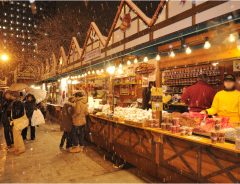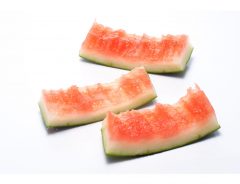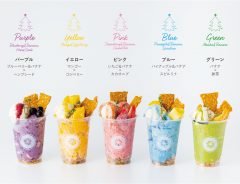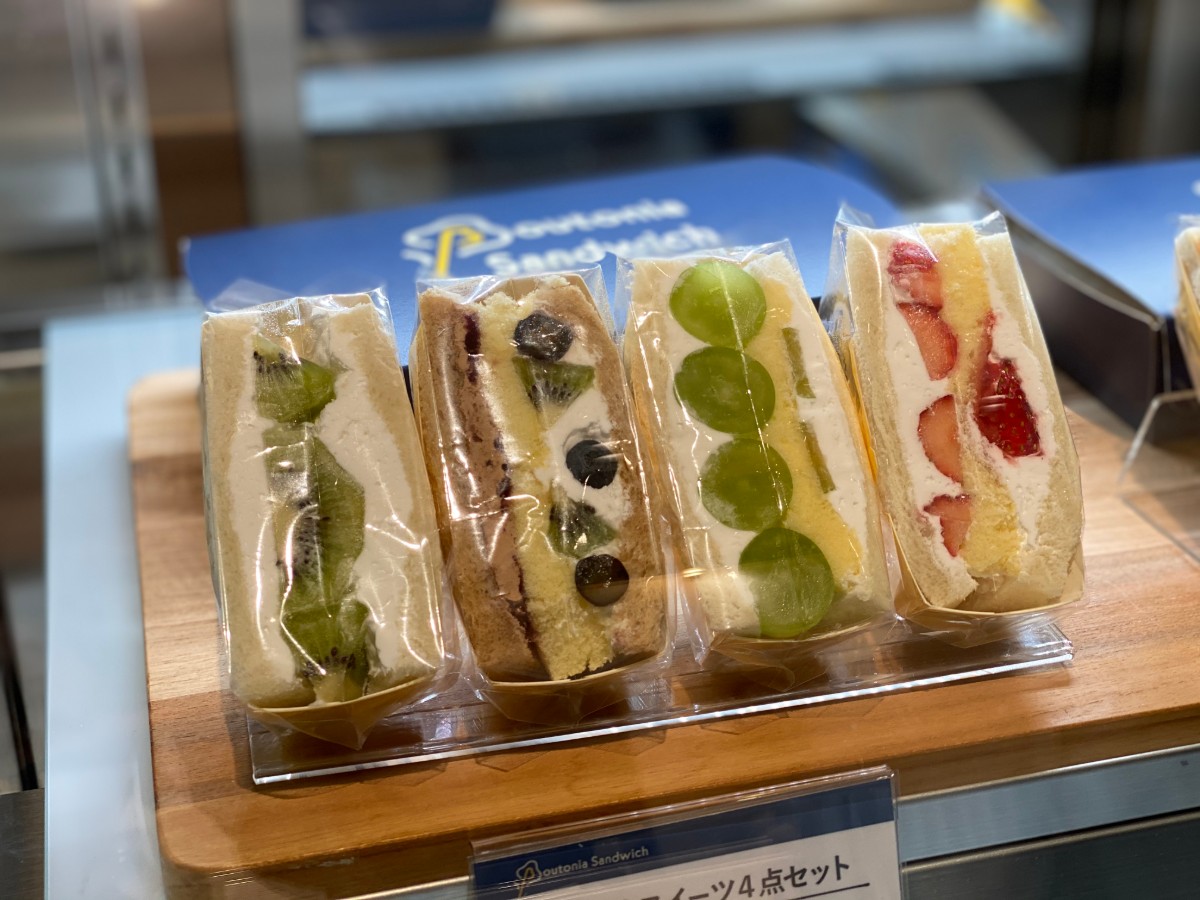- Tags:
- Boxing Day / Christmas / Fruit / fruit sandwich
Related Article
-

How Yamaguchi city became the birthplace of Christmas in Japan
-

Don’t throw away your watermelon rinds! Simple trick to turn watermelon leftovers into delicious treats
-

Virtual Singer YuNi To Have Her First Live VR Concert on Xmas Eve
-

Experience an explosion of colour this December with these vegan Christmas drinks
-

Starbucks Japan’s new festive beverages are based on a caramel pastry dessert perfect for the season
-

Christmas Tree Inspired Frappucino is Starbucks Japan’s Most Festive Beverage Yet



Christmas is a special time of year wherever you are in the world. And wherever that may be, each nation, cultural group, or even family unit likely has their own special traditions. Amongst these, the Christmas Dinner leftover sandwich stands out as one the most noble customs of the western turkey eating world! An obligatory encore to Christmas Day, consumed by many on December 26th, the sandwich is rich in delicious roasted meats, vegetables, and also nostalgia for the previous day.
Photo by Toby M
Japan too has its own set of Christmas traditions. A crispy helping of KFC, or creamy, strawberry filled Christmas short cake for example. These are delicious and the perfect way to fill you meals on Christmas Day. But the traditional Christmas roast is rarely eaten in Japan so anyone visiting or living here will struggle to find the comfort of a Christmas dinner sandwich on December 26th...
While for many this may be disappointing, for this writer at least, it is an opportunity to reinvent the Christmas dinner sandwich tradition in Japan! Without the golden bird though...like Santa perplexed, you may ask: how, how, how? Far from making Christmas dinner sushi, Japan’s best candidate for a new post-Christmas sandwich is not in dinner at all, but dessert. The fluffy fruit laden Christmas shortcake already has a close cousin, waiting to be indulged following Christmas Day. The fruutsu sando: the fruit sandwich!
Photo by Toby M
Why the fruit sandwich and how can it be better than turkey?
Put simply, the fruit sandwich’s strong resemblance to a traditional Christmas shortcake makes it the ideal candidate for the position of Japan’s post-Christmas sarny. Both are filled with fruit and crammed with cream. The only difference is the former is sandwiched between fluffy sponge and the latter between fluffy white bread. Like the shortcake, Japan’s fruit sandwiches are prepared with precision. They too look artistic, like a beautiful white snow scene laden with fruity jewels, arranged neatly between breaded frames. They taste light but indulgent, a fluffy marriage of whipped cream and sweet, slightly tart fruits.
The fruit sandwich then, is like an elegant sister to the meat filled, gravy oozing turkey sandwich. It isn’t heavy like a Christmas dinner roll, so it won’t send you off to sleep 30 minutes after eating. If anything it will give you a pleasant sugar high to keep you going through the festivities.
Shifting the focus to reliving Christmas dessert in sandwich form then is just the kind of novelty to intrigue and satisfy those missing their Christmas dinner sandwiches. It also fits neatly in to Japan’s tradition of adapting foreign products and customs by adding a uniquely Japanese twist, like with the omelette which became omuraisu.
Where did the fruit sandwich come from?
The fruit sandwich has its origins in Edo Japan. Though no one is sure who got the first slice of this now lucrative business, its roots can be traced back to either Kyoto or Tokyo in the 1800’s.
In the 19th century, Kyoto experienced a boom in cafe culture. Fruit sandwiches were a popular item on cafe menus as Kyoto was ideally located to receive domestic fruit from nearby prefectures such as Yamanashi, and more exotic items from neighboring port cities, Osaka and Kobe. Unfortunately there are no records of which was the fruit sando’s flagship store in Kyoto other than menus dating to the 19th century.
In Tokyo, Edo era fruit parlor Senbikiya is credited with having created the fruit sandwich. Senbikiya originated in 1834, when Saitama prefecture based samurai Benzo Ohshima began selling fresh fruits to people in Edo using the canal routes leading to the capital. The popularity for Benzo‘s fruit boomed and Senbikiya eventually opened stores in Shinbashi, Nihonbashi to provide delicious fruit based drinks and snacks to the people of old Tokyo. It’s not clear how early the fruit sandwich was added to fruit parlor menus but records show a Shinjuku based fruit parlor offered them in 1926. Sandwiches were viewed as an inexpensive way to enjoy fruits which were a luxury at the time.
Fruit in Japan today is still expensive compared to other parts of the world, but fruit sandwiches are readily available for you to try in cafes, fruit parlors and even convenience stores, for a reasonable price.
Where can I get one?
Photo by Toby M
Already mentioned but synonymous with the fruit sandwich is the fruit parlor Senbikiya. Senbikiya’s sandwiches are renowned for their delicious taste owing to their use of only the freshest fruits. The store makes sandwiches to order so stop by for a fresh mouthful of the freshest festive fruits this December.
Photo by Toby M
Address: Senbikiya, 5 Chome-5-1 Ginza, Chuo City, Tokyo 104-0061, Japan
There are a number of other specialty fruit sandwich stores in Tokyo where you can partake in this new Boxing Day tradition. Boutonia Sandwich in Shibuya Scramble Square has a selection of beautiful fruit sandwiches with interesting fillings such as cream and grape or cream, kiwi and blueberry. Their bread is not too thick but is so fluffy it practically melts in the mouth.
Photo by Toby M
Address: Boutonia Sandwich, 2 Chome 24-12 Shibuya, Shibuya-ku, Tokyo Shibuya Scramble Square B2F
Finally, you can pick up fruit sandwiches from convenience stores such as Natural Lawson or Family Mart for a few hundred yen.
The Japanese fruit sandwich is spectacular piece of bread-craft which begs to be tried at any time of the year. Whether this article projects it to becoming the post-Christmas sandwich of choice remains to be seen. But for many of us in Japan, a country absent of turkey, a sandwich shaped hole always remains unfilled after Christmas each year. The creamy, fruit-filled delights of Japanese Christmas cake, embodied in fruit sandwich form are a novel, delicious way to fill that hole.
Reference: 金沢情報発信局